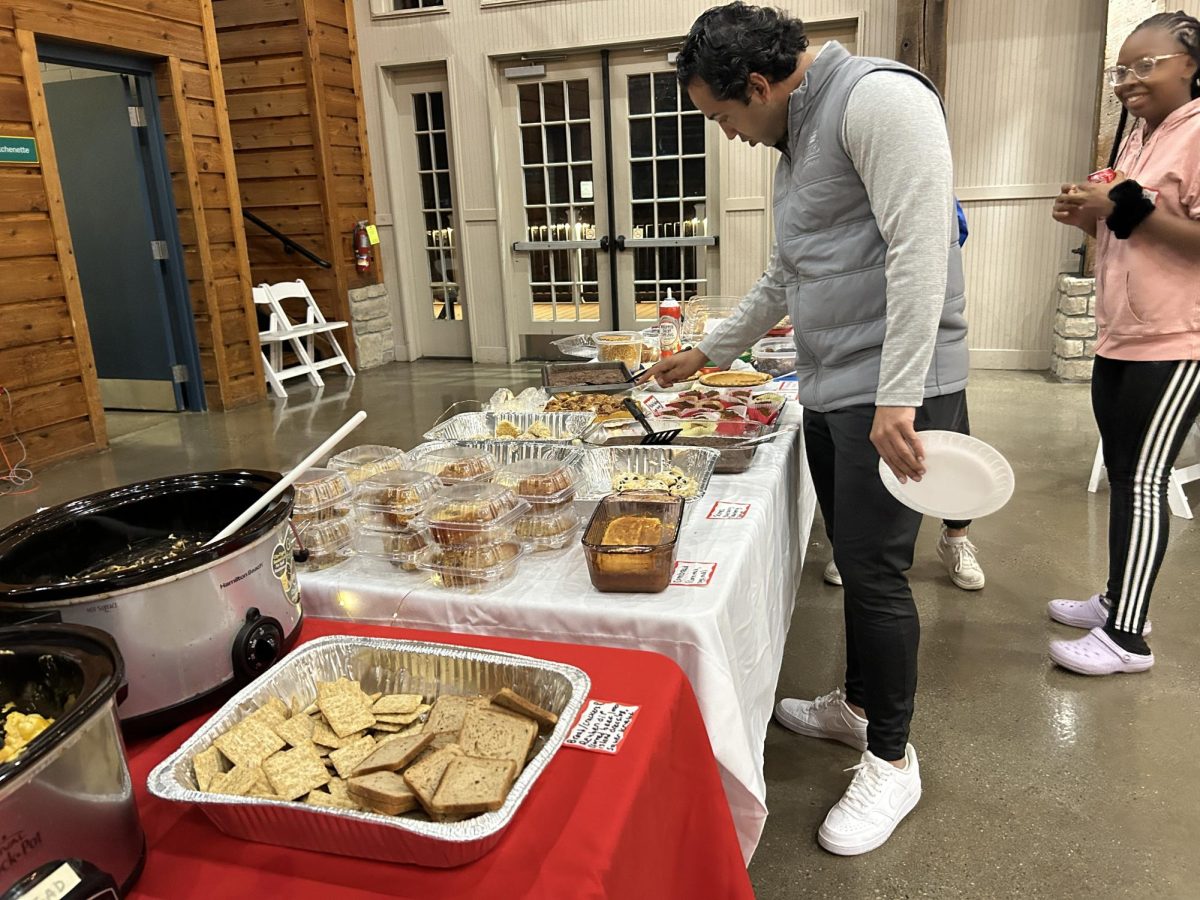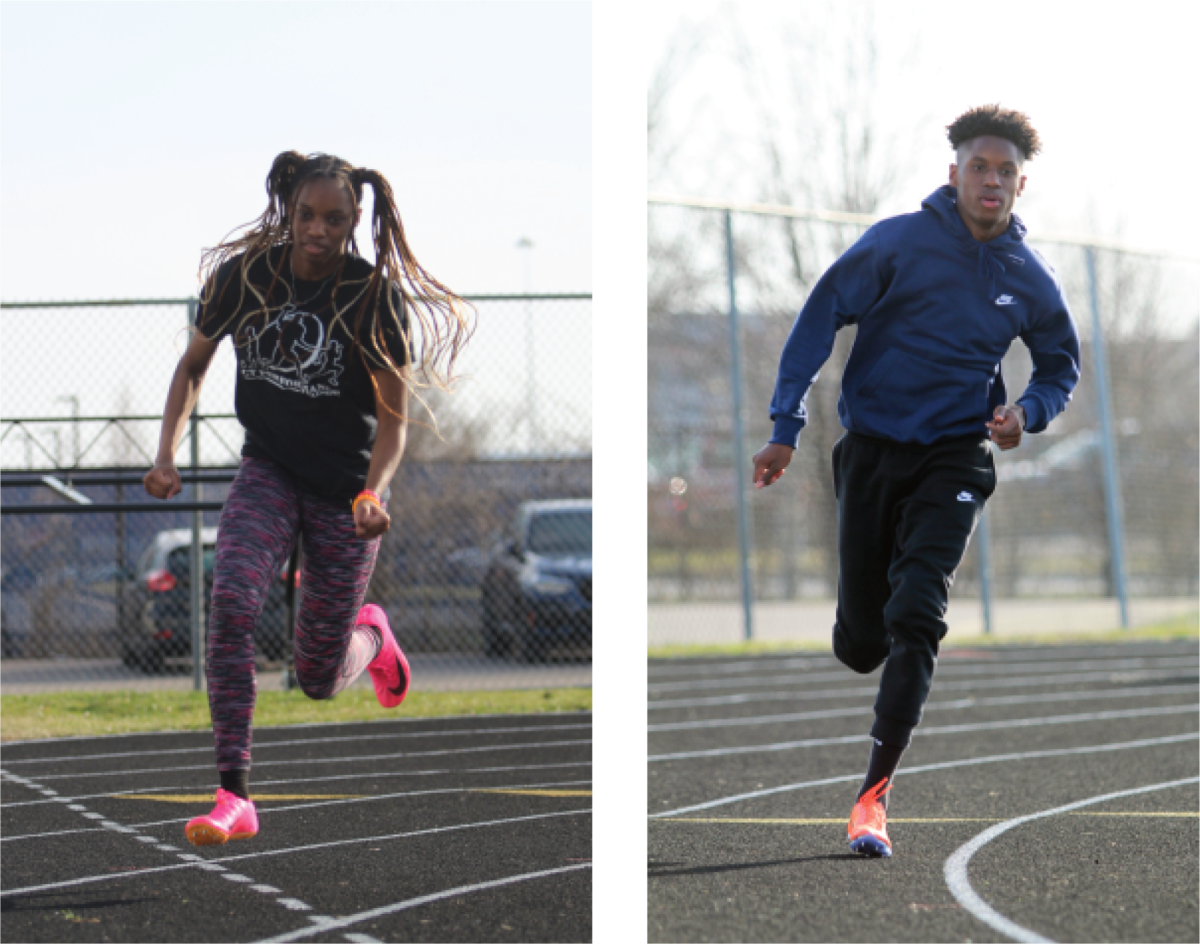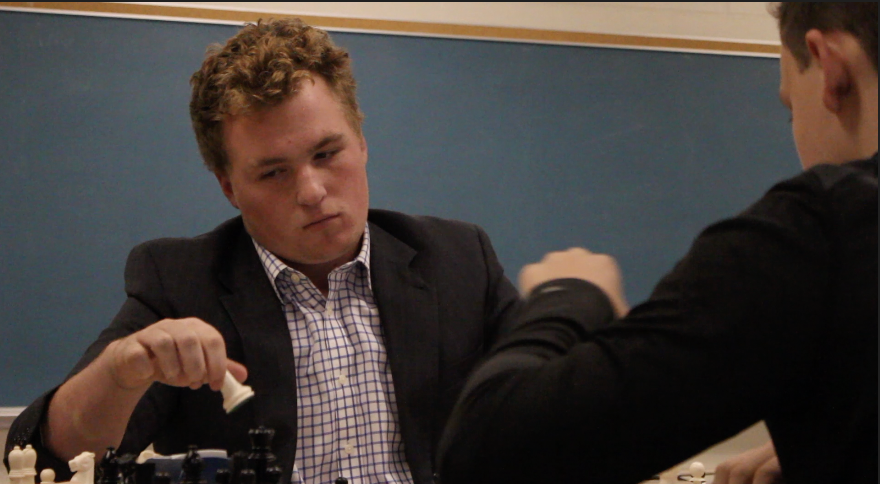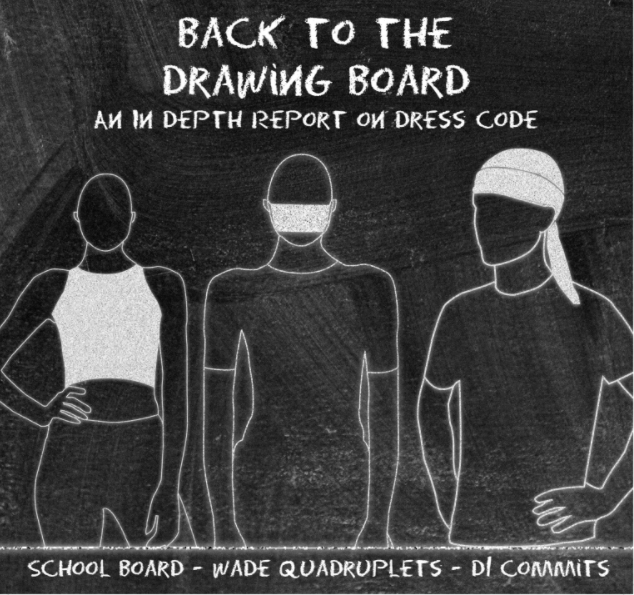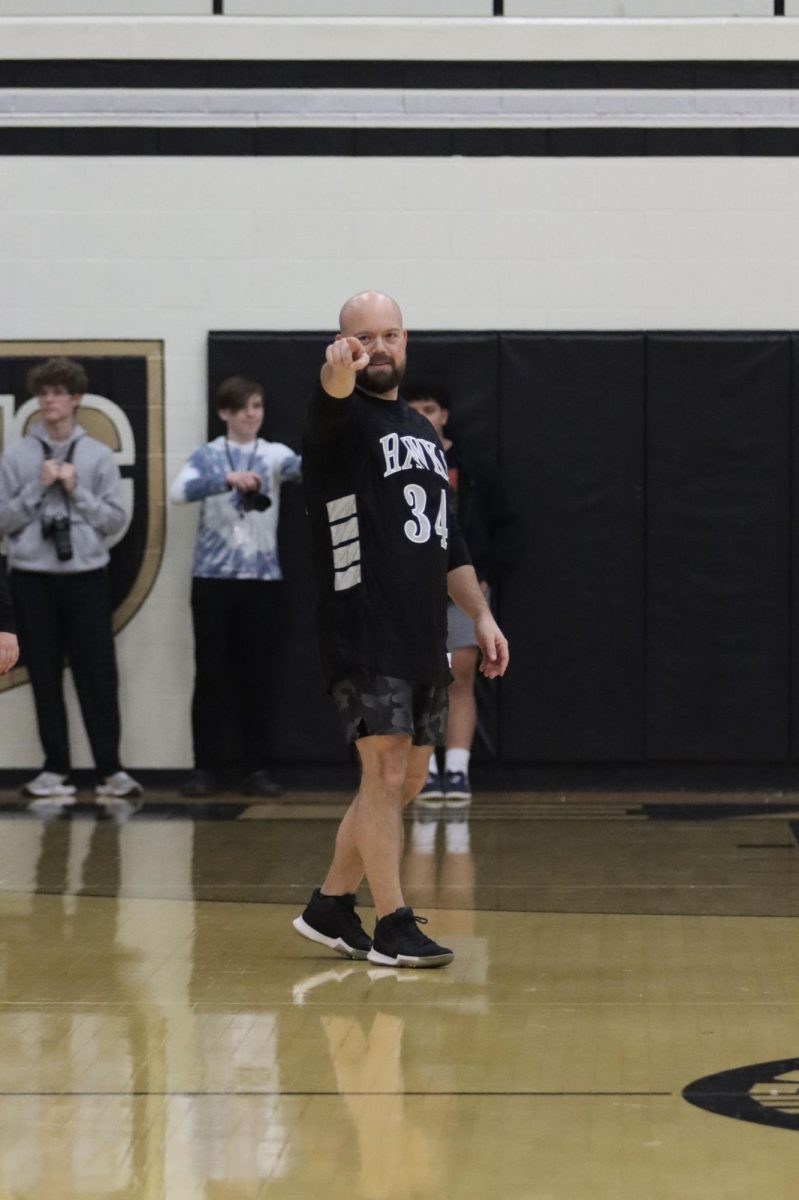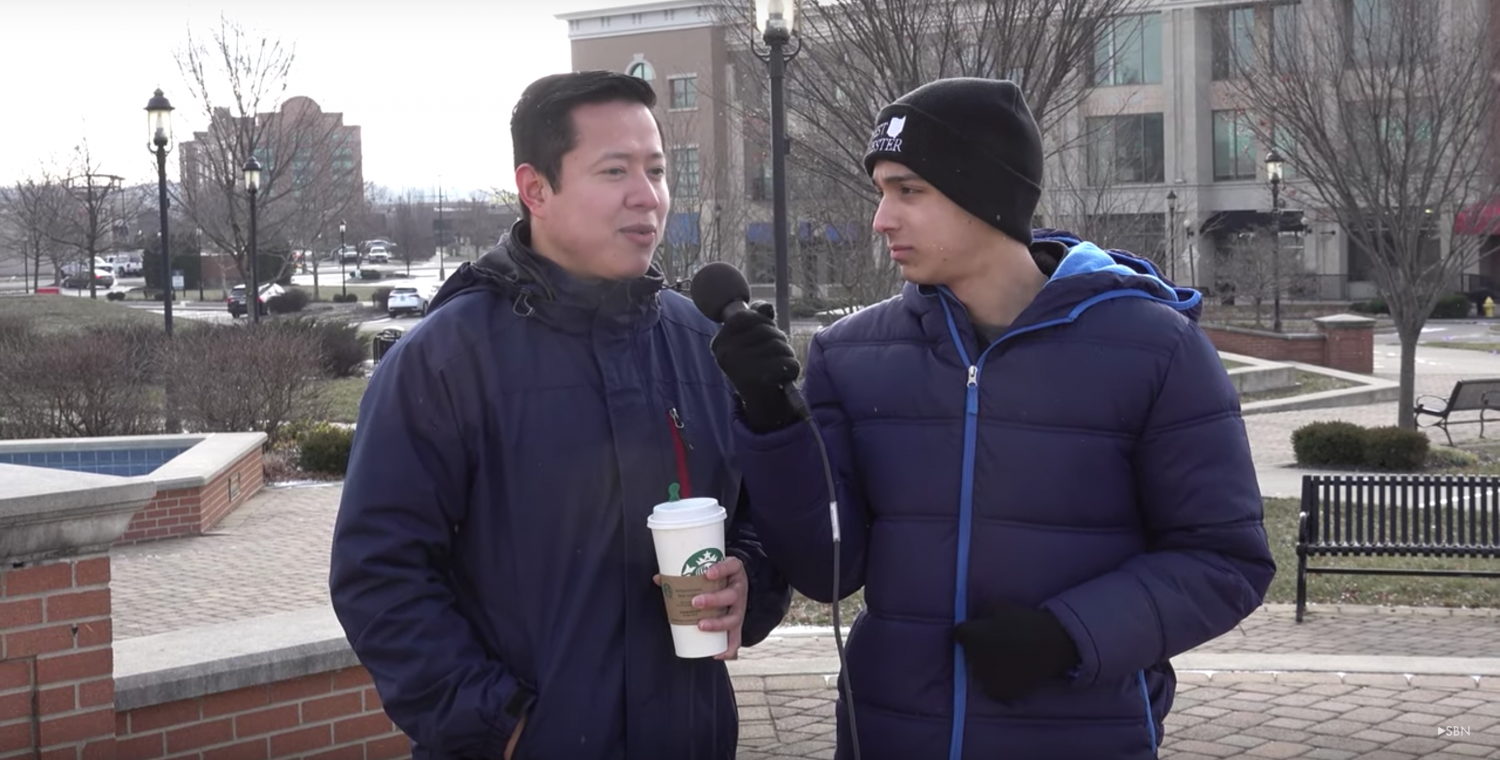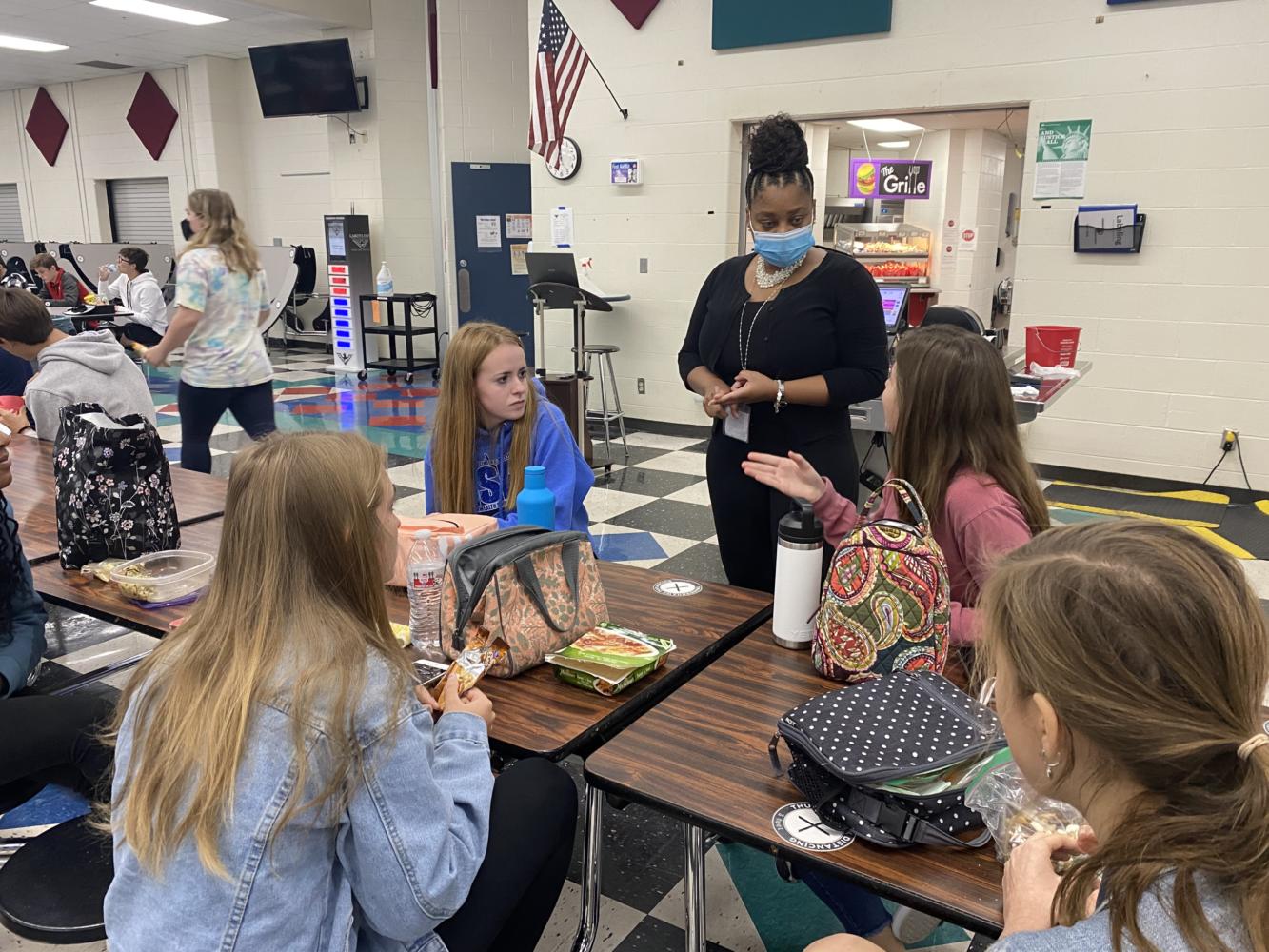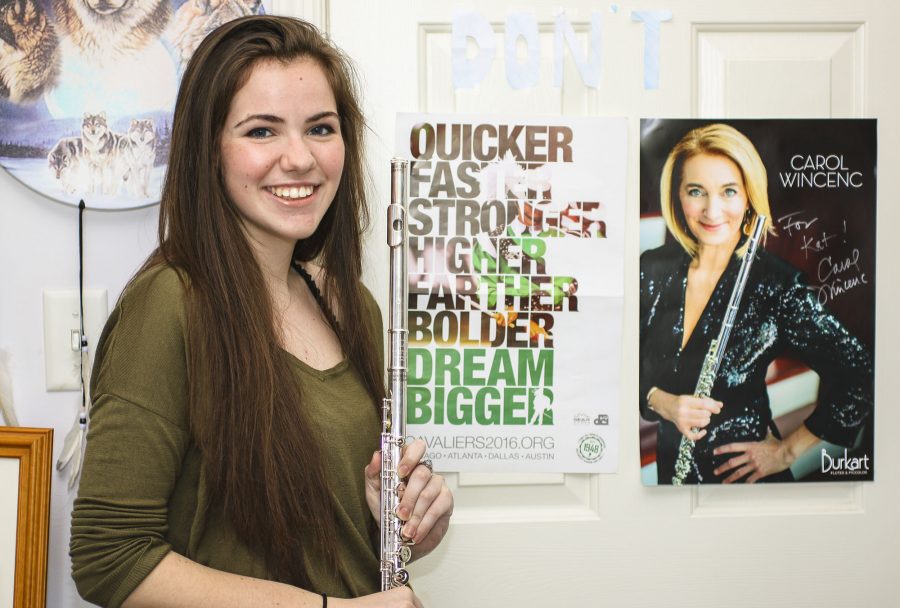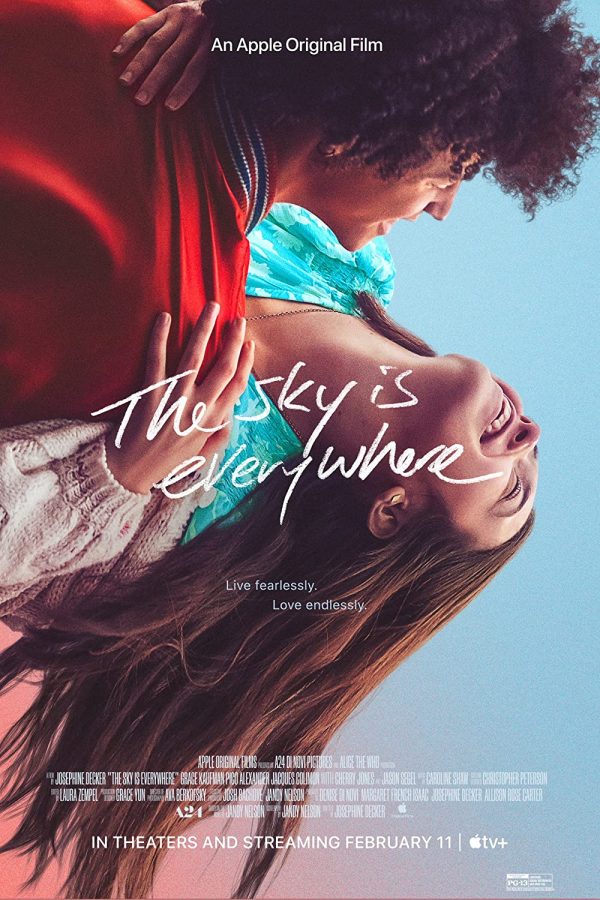By Cristina Francisco | Photography by Maya Wells
After a stressful day at school, East junior Kat Eroskey lies on her bed, listening to the soothing notes of Felix Mendelssohn’s Violin Concerto in E Minor. As she stares at the ceiling, her eyes follow the fingering charts, and she becomes more relaxed with each note that reaches her ear. Abruptly, she gets up and walks past her walls that are plastered with more fingering charts, adjudication sheets and numerous posters of her favorite bands. Eroskey reaches the corner of her room where she searches through her bins of records and, soon enough, the sounds fill her room again.
For some people, their interaction with music is limited to car drives and the occasional background music heard throughout retail stores, but for Eroskey, it’s a part of her everyday life not only in school but also outside.
“Not only do I practice on a daily basis, but I am listening to music or thinking about it constantly,” Eroskey says. “Music is what I am most passionate about [because] I can always count on music as a way to express myself. There is just something so soothing about being able to listen to any song in the world when I get in my car after school.”
Aside from music being able to help listeners process a stressful day at school or be used as a pastime, there are a variety of new ways in which music is being used that can psychologically affect the listener. In a Frontiers in Human Neuroscience study, the Center for Interdisciplinary Music Research at the University of Jyväskylä, the University of Helsinki and Aalto University in Finland found different ways in which music can be utilized and the effects of these usages.
Participants were evaluated on the Music in Mood Regulation scale (MMR), which shows how people may regulate their mood with music. The MMR divides the way people use music into categories including: Entertainment, Revival, Strong Sensation, Mental Work, Diversion, Solace and Discharge.
Diversion involves listening to music to serve as a distraction. Solace involves listening to music that matches how one is feeling, whereas with Discharge, music is matched to the emotional state to better express the emotion.
In addition to these findings, the report included studies conducted by the American Psychology Association that said the use of distraction and positive reappraisal “correlate negatively to undesirable outcomes such as depression, whereas inefficient emotion regulation strategies such as venting, suppression and rumination relate positively to depression and other mood disorders.”
However, for Eroskey, using solace and discharge have helped her and not affected her on a higher level psychologically.
“When I’m upset or sad, I will tend to listen to softer music,” Eroskey says, “However, if I’m really frustrated with something that happened, I will try to listen to super upbeat, pop music to channel my energy into belting out some Demi [Lovato] rather than going off on someone. Confident, that’s me.”
This positive aspect of music can also be used as a healing method especially in the growing field of music therapy. Music therapists use this for a variety of non-musical tasks such as improving social functioning to have psychological improvements. Some of their clients include people diagnosed with Alzheimer’s, Parkinson’s disease and autism.
Music therapist Shonda Malik has worked with a child who was “in his own world and not talking.” Later on, he was diagnosed with autism and received music therapy. His initial reaction to music was paying attention, increased eye contact and spending a longer amount of time on one activity instead of jumping from one thing to another. Music therapy has also helped Malik work with clients who have suffered effects from strokes.
“With someone [who is older and suffered] a stroke, they try to regain the ability to talk,” Malik says. “For them, the section of the brain [that processes] languages was damaged, and because they can still sing, someone who is not able to speak a sentence can sing a sentence.”
The connection between music and the brain is also seen in kids who go into band. According to Malik, research shows that students in band have a “measurable difference” in brain development compared to kids who don’t learn how to play an instrument. The training that they go through when learning to play an instrument is making new connections in the brain; therefore, there is more brain development.
This advanced brain development is found in a 2015 study conducted by the Rotman Research Institute that found that older adults who received musical training in their youth were 20 percent faster in identifying speech sounds than their non-musician friends.
Participating in two bands at school as well as in two extracurricular bands, Eroskey says that being a musician has helped her concentrate on multiple things at once. Being involved in these multiple bands and learning to play “challenging pieces” is helpful to Eroskey because she deems it “vital to [her] growth as a musician.”
“If you’re playing a slow ballad, you want to make sure you’re playing with the appropriate tone and dynamic levels as opposed to a faster, more vigorous pace,” Eroskey says, “[At the same time, you have] to watch the conductor, listen for intonation and identify how your part fits into the band as a whole.”
The Society for Neuroscience found in a 2013 study that musicians have an enhanced ability to integrate sensory information from hearing, touch and sight. The test results showed that, while musicians and non-musicians had “identical capabilities to detect and discriminate information based on a single sense,” people who received longer musical training were better at “[separating] auditory and tactile information and not falling prey to illusions when presented with multisensory stimulation.”
Additionally, Laura Brown, an assistant professor of music therapy at Ohio University, says music can help improve mood because it can help one further experience a negative emotion that needs to be experienced.
“If a person is having a bad day, turning on a certain kind of music can help make them feel better,” Brown says. “Sometimes you have to be sad before you can move forward. Music therapy just uses all those ideas in a much more clinical and individualized way.”
The effect of using music to cope with a negative emotion may also be harmful, says Brown. While music may help the average listener experience emotions such as sadness, music therapists are further trained to help facilitate that sadness and then process it so that patients “don’t necessarily feel stuck in it.”
Listeners who may not know how to facilitate and process emotions such as sadness should be aware of the harmful effects, and this also include listening to the lyrics.
“When listening to lyrics, you have to consider the meaning behind what you are using and the direction you are trying to go,” Brown says. “There are unique areas of the brain that process language, but when you are using music with lyrics, that activates those areas as well as other parts. You have to be aware of when you are using music and when you are not.”
While Eroskey realizes that some songs can be painful if the piece is connected to a painful memory, she doesn’t view the lyrical aspect of music as harmful but rather as “full of emotion.” Instead, she focuses on the positive aspects of lyrics.
As Eroskey works on building up her personal repertoire, practicing music and surrounding herself with it, music continues to be helpful and vital to her growth as a musician. At the same time, she is hopeful for the future of music.
“It’s fantastic how many genres there are and how everyone has a different taste,” Eroskey says. “There are so many talented people in the world with so many songs in their head just waiting to be put down onto paper. I’m excited to discover new music in my life. The possibilities are endless when it comes to music.”



